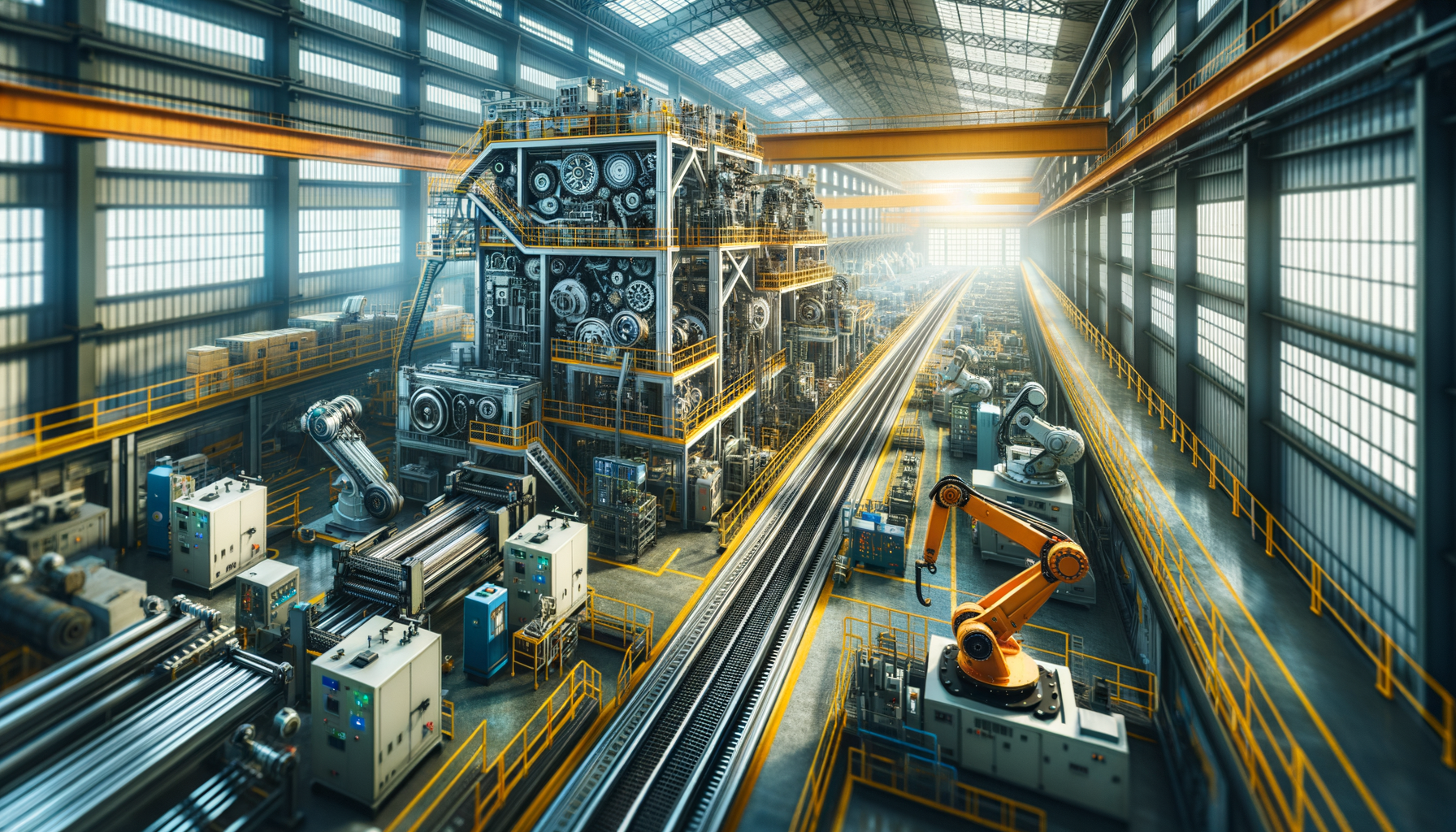The Role of Industrial Machines in Manufacturing
Industrial machines are the backbone of modern manufacturing, playing a crucial role in enhancing efficiency and productivity. These machines are designed to perform a variety of tasks, from assembling components to packaging finished products. By automating repetitive tasks, industrial machines help manufacturers reduce labor costs and minimize human error. This automation allows for consistent product quality, which is essential in maintaining a competitive edge in the market.
Moreover, industrial machines are pivotal in scaling production to meet increasing demands. As consumer needs grow, manufacturers rely on advanced machinery to ramp up production without compromising quality. This capability is particularly important in industries such as automotive, electronics, and pharmaceuticals, where precision and reliability are paramount. By leveraging state-of-the-art technology, industrial machines enable manufacturers to innovate and adapt to changing market dynamics.
In addition to boosting efficiency, industrial machines contribute to sustainability efforts. Many modern machines are designed with energy efficiency in mind, reducing the carbon footprint of manufacturing processes. This focus on sustainability not only benefits the environment but also aligns with the growing consumer demand for eco-friendly products. Overall, industrial machines are indispensable in driving the progress and sustainability of the manufacturing sector.
Types of Industrial Machines and Their Applications
Industrial machines come in various forms, each designed to serve specific functions within the manufacturing process. Some of the most common types include:
- Assembly Machines: These machines are used to assemble components into finished products. They are widely used in the automotive and electronics industries, where precision and speed are critical.
- Cutting Machines: Employed in industries such as metalworking and textiles, cutting machines are essential for shaping materials to precise specifications.
- Packaging Machines: These machines automate the packaging process, ensuring products are securely packed for distribution. They are crucial in the food and beverage industry, where hygiene and efficiency are top priorities.
- 3D Printers: Revolutionizing the manufacturing landscape, 3D printers allow for the creation of complex designs with minimal waste. They are increasingly used in prototyping and custom manufacturing.
Each type of machine is tailored to meet the unique demands of its respective industry, highlighting the versatility and adaptability of industrial machinery. By understanding the specific applications of these machines, manufacturers can optimize their operations and achieve greater efficiency.
Technological Advancements in Industrial Machinery
The field of industrial machinery is continually evolving, driven by technological advancements that enhance functionality and efficiency. One significant development is the integration of the Internet of Things (IoT) in machinery, enabling real-time monitoring and data analysis. This connectivity allows manufacturers to track machine performance, predict maintenance needs, and reduce downtime, ultimately leading to cost savings and improved productivity.
Another noteworthy advancement is the use of artificial intelligence (AI) in industrial machines. AI algorithms can optimize production schedules, identify defects, and even suggest improvements in the manufacturing process. This level of intelligence empowers manufacturers to make data-driven decisions and maintain high standards of quality.
Robotics is also making significant strides in industrial machinery, with collaborative robots, or cobots, working alongside humans to enhance productivity. These robots are designed to perform tasks that are dangerous or repetitive, freeing up human workers for more complex and creative roles. The synergy between humans and robots is transforming the manufacturing landscape, making it more efficient and innovative.
As technology continues to advance, industrial machines will become even more sophisticated, offering new opportunities for manufacturers to innovate and thrive in a competitive market.
Challenges and Considerations in Industrial Machinery
While industrial machines offer numerous benefits, they also present challenges that manufacturers must address. One significant challenge is the high initial investment required for purchasing and installing advanced machinery. This cost can be a barrier for small and medium-sized enterprises (SMEs) looking to compete with larger players. However, manufacturers can explore leasing options or government incentives to mitigate this financial burden.
Maintenance is another critical consideration, as machines require regular upkeep to function optimally. Manufacturers must implement robust maintenance schedules and train staff to identify and address potential issues promptly. Failure to do so can result in costly downtime and compromised product quality.
Additionally, the rapid pace of technological advancements means that machines can quickly become obsolete. Manufacturers must stay abreast of industry trends and invest in scalable and upgradeable machinery to remain competitive. This forward-thinking approach ensures that they can adapt to new technologies and maintain a leading edge in the market.
By addressing these challenges, manufacturers can maximize the benefits of industrial machines and secure long-term success.
The Future of Industrial Machines
The future of industrial machines is bright, with emerging technologies set to redefine the manufacturing landscape. One promising development is the rise of smart factories, where machines communicate with each other and adapt to changing conditions autonomously. This level of automation will streamline production processes and enhance overall efficiency.
Moreover, advancements in materials science are leading to the creation of stronger and more durable machines. These innovations will enable manufacturers to produce high-quality products with greater precision and speed. The integration of sustainable practices in machine design will also play a significant role in reducing the environmental impact of manufacturing.
As the demand for customization grows, industrial machines will become more flexible, allowing for the production of bespoke products tailored to individual consumer needs. This shift towards personalization will open new avenues for manufacturers to differentiate themselves in the market.
In conclusion, industrial machines are poised to drive the next wave of innovation in manufacturing. By embracing these advancements, manufacturers can enhance their operations, meet evolving consumer demands, and contribute to a sustainable future.



Leave a Reply